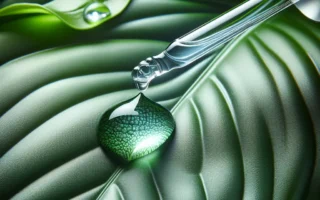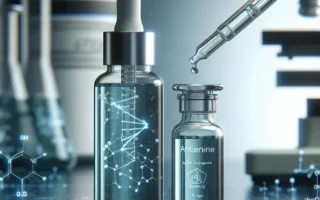Cleansing Techniques for Healthy Skin
When it comes to maintaining healthy and radiant skin, a proper cleansing technique is essential for an effective skincare routine. The first step in any skincare regimen should always be cleansing, as it sets the foundation for the remaining steps. Here are some essential cleansing techniques to ensure healthy and glowing skin.
1. Choose the Right Cleanser: Selecting a gentle and appropriate cleanser for your skin type is crucial. For oily or acne-prone skin, a foaming or salicylic acid-based cleanser may be beneficial, while those with dry or sensitive skin should opt for a hydrating and fragrance-free cleanser.
2. Avoid Hot Water: Washing your face with hot water can strip the skin of its natural oils, leading to dryness and irritation. Instead, use lukewarm water to effectively cleanse the skin without causing damage.
3. Gentle Cleansing Motion: When cleansing the face, use a gentle, circular motion to massage the cleanser into the skin. Avoid harsh scrubbing, as it can cause micro-tears and damage the skin’s surface.
4. Double Cleansing: For those who wear makeup or sunscreen, double cleansing can be highly beneficial. Start with an oil-based cleanser to remove makeup and impurities, then follow up with a water-based cleanser to deep clean the pores.
5. Pat Dry, Don’t Rub: After cleansing, gently pat your skin dry with a soft towel. Avoid rubbing the skin, as this can cause irritation and lead to premature aging.
6. Don’t Forget the Neck: Many overlook the neck area when cleansing, but it is important to extend your skincare routine to this area as well. Use the same gentle techniques to cleanse the neck and décolletage.
7. Consistency is Key: Establish a regular cleansing routine, preferably in the morning and evening, to maintain clear and healthy skin. Consistency will maximize the benefits of your skincare products and keep your skin in top condition.
By incorporating these essential cleansing techniques into your daily skincare routine, you can achieve a flawless and healthy complexion. Remember, proper cleansing sets the stage for the effectiveness of the subsequent skincare steps, making it a crucial foundation for overall skin health.
Choosing the Right Moisturizer for Your Skin Type
Choosing the right moisturizer is a crucial step in any skincare routine. With the multitude of options available, it’s important to select a moisturizer that is tailored to your specific skin type. For those with dry skin, opting for a rich, creamy moisturizer containing ingredients like hyaluronic acid or glycerin can help lock in moisture and prevent flakiness. On the other hand, individuals with oily or acne-prone skin should look for non-comedogenic, oil-free moisturizers to avoid clogging pores and exacerbating breakouts. Combination skin may benefit from a lightweight, gel-based moisturizer that can hydrate dry areas without overwhelming oily zones. Those with sensitive skin should opt for fragrance-free, hypoallergenic moisturizers to minimize the risk of irritation. Additionally, individuals with mature skin may want to consider moisturizers with anti-aging properties such as peptides or retinol to address fine lines and wrinkles. By choosing a moisturizer tailored to your specific skin type, you can ensure that your skin receives the hydration and nourishment it needs to look and feel its best.
Importance of Exfoliation in Skincare
Exfoliation is an essential step in any skincare routine. It involves the removal of dead skin cells from the skin’s surface, which helps to improve the skin’s texture, unclog pores, and promote cell turnover. There are two main types of exfoliation: physical and chemical. Physical exfoliation, such as using a scrub or a brush, helps to physically scrub away dead skin cells. On the other hand, chemical exfoliation involves the use of gentle acids like AHAs (alpha hydroxy acids) and BHAs (beta hydroxy acids) to dissolve dead skin cells.
Regular exfoliation can help to maintain a healthy and glowing complexion by preventing the buildup of dead skin cells, which can lead to dull, rough, and uneven skin texture. It also allows for better absorption of skincare products, as it removes the barrier of dead skin cells that can hinder the penetration of active ingredients.
However, it is important to exfoliate gently and not overdo it, as excessive exfoliation can lead to irritation, redness, and dryness. It is recommended to exfoliate 1-2 times a week, depending on your skin type and the exfoliation method used.
In conclusion, exfoliation is a crucial step in achieving healthy, radiant skin. It helps to unclog pores, improve skin texture, and allow for better product absorption. By incorporating exfoliation into your skincare routine, you can maintain a flawless complexion and address various skincare concerns effectively.
Understanding the Benefits of Serums
Understanding the benefits of serums is an essential step in establishing a flawless skincare routine. Serums are lightweight, fast-absorbing liquids that contain high concentrations of active ingredients designed to target specific skin concerns. Whether it’s boosting hydration, reducing fine lines and wrinkles, or brightening the complexion, serums offer a potent dose of nourishment for the skin.
One of the key advantages of serums is their ability to penetrate deeply into the skin, delivering powerful ingredients directly to the cellular level. This targeted approach enhances the effectiveness of the skincare routine, allowing for noticeable improvements in skin texture and appearance. Additionally, serums are often formulated with antioxidants, vitamins, and other rejuvenating compounds that help protect the skin from environmental damage and signs of aging.
Another benefit of incorporating serums into your skincare regimen is their versatility. With a wide range of serums available, each addressing specific skin concerns, individuals can tailor their routine to meet their unique needs. Whether dealing with acne, hyperpigmentation, or sensitive skin, there’s a serum that can provide the necessary support for a healthier complexion.
Furthermore, serums play a crucial role in preparing the skin for subsequent skincare steps, such as moisturizing and sun protection. By applying a serum before moisturizer, you can ensure that the active ingredients are given the opportunity to penetrate the skin fully, maximizing their effectiveness.
In conclusion, understanding the benefits of serums is fundamental to building an effective skincare regimen. Their potent formulations, ability to target specific concerns, and role in enhancing overall skin health make serums a valuable addition to any beauty routine.
Daily Sun Protection: Why It’s Crucial
When it comes to maintaining healthy and youthful skin, daily sun protection is absolutely crucial. Sun exposure is one of the primary culprits behind premature skin aging, dark spots, and an increased risk of skin cancer. Therefore, making sun protection a non-negotiable part of your skincare routine is essential for maintaining the overall health and appearance of your skin.
Step 1: Choosing a broad-spectrum sunscreen with SPF 30 or higher is the first and most important step in protecting your skin from the sun’s damaging rays. Look for a sunscreen that offers protection against both UVA and UVB rays, as these can cause long-term skin damage.
Step 2: Apply sunscreen generously and evenly to all exposed skin, including the face, neck, ears, and any other areas that may be exposed to the sun. Don’t forget to cover often overlooked spots like the tops of your feet and the back of your hands.
Step 3: Reapply sunscreen every two hours, or more frequently if you are swimming or sweating. Even water-resistant sunscreens need to be reapplied regularly to maintain their effectiveness.
Step 4: Incorporate sun-protective clothing, such as hats and sunglasses, into your daily wardrobe to provide additional defense against the sun’s rays.
Step 5: Seek shade during the sun’s peak hours, typically between 10 a.m. and 4 p.m., to minimize direct exposure to UV rays.
Step 6: Be mindful of reflective surfaces such as water, snow, and sand, which can intensify the sun’s damaging effects on your skin. Take extra precautions in these environments.
Step 7: Remember that sun protection is a year-round commitment, not just a summertime concern. Even on cloudy or overcast days, UV rays can still penetrate the atmosphere and cause harm to your skin.
By diligently following these essential steps for daily sun protection, you can safeguard your skin from the sun’s harmful effects and maintain a healthy, glowing complexion for years to come.
Creating a Consistent Skincare Routine
Creating a consistent skincare routine is essential for achieving and maintaining healthy, glowing skin. Whether you have a strict 10-step routine or prefer to keep it simple with just a few key products, consistency is key. Here are seven essential steps to help you create a flawless skincare routine and maintain consistency in your daily regimen.
1. Understand Your Skin Type: Before diving into any skincare routine, it’s crucial to understand your skin type. Whether you have oily, dry, combination, or sensitive skin, the products and steps in your routine will vary based on your specific skin needs.
2. Cleanse Daily: Cleansing your skin both in the morning and evening is a fundamental step in any skincare routine. This helps to remove dirt, oil, and impurities, allowing your skin to better absorb the subsequent products.
3. Exfoliate Regularly: Exfoliation helps to remove dead skin cells, unclog pores, and improve overall skin texture. Depending on your skin type, exfoliate 1-3 times per week to reveal fresh, radiant skin.
4. Use Treatment Products: Incorporate treatment products such as serums or spot treatments to address specific concerns like acne, hyperpigmentation, or signs of aging. These targeted products can make a significant difference in the overall health and appearance of your skin.
5. Moisturize Daily: Hydrating your skin is essential, regardless of your skin type. A good moisturizer helps to lock in moisture, strengthen the skin’s natural barrier, and prevent water loss, keeping your skin soft and supple.
6. Apply Sunscreen: Protecting your skin from harmful UV rays is crucial in maintaining youthful and healthy-looking skin. Make sunscreen application a non-negotiable step in your morning skincare routine, even on cloudy days.
7. Be Patient and Consistent: Results won’t happen overnight, and consistency is key. Stick to your skincare routine and give it time to work. Consistent use of effective products is the key to achieving and maintaining healthy, radiant skin.
By following these essential steps and committing to a consistent skincare routine, you can ensure that your skin receives the care and attention it deserves, ultimately leading to a flawless complexion.



